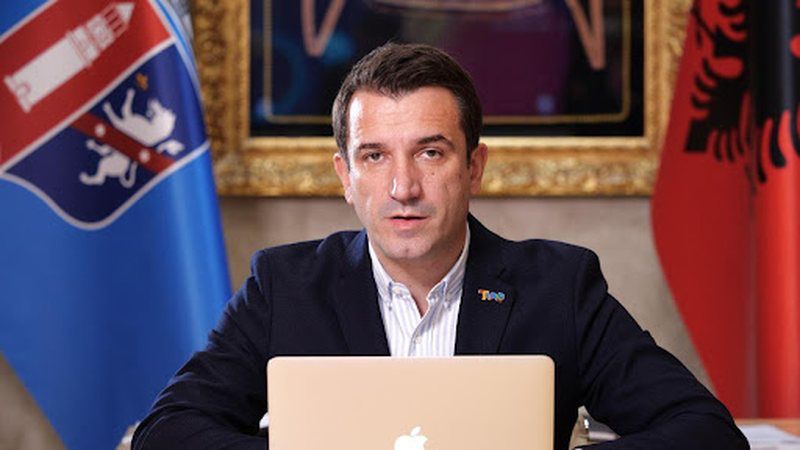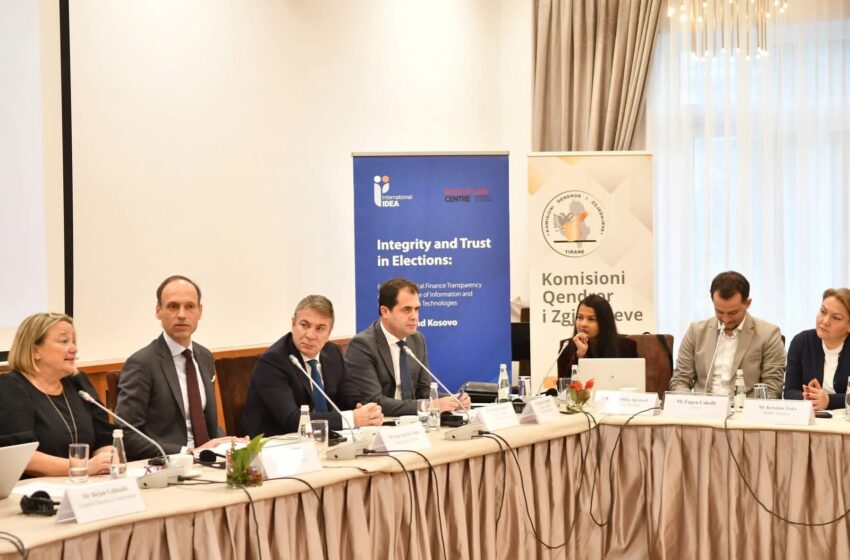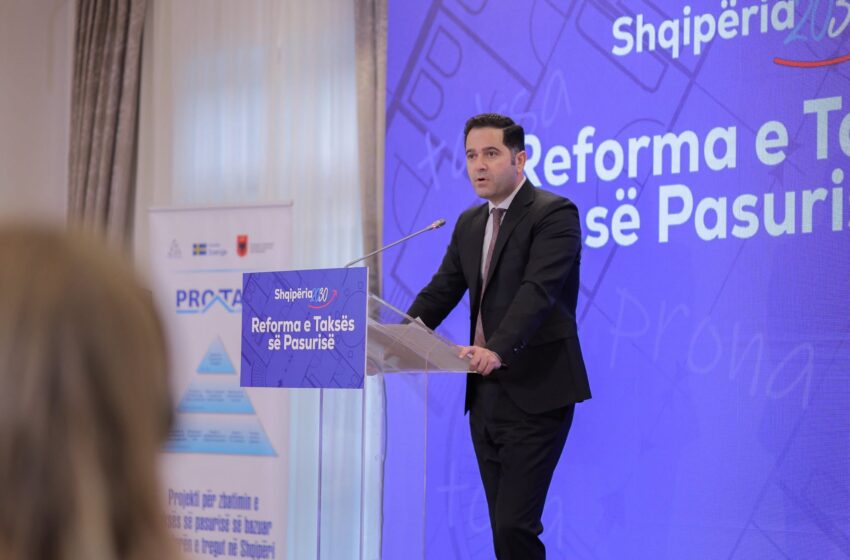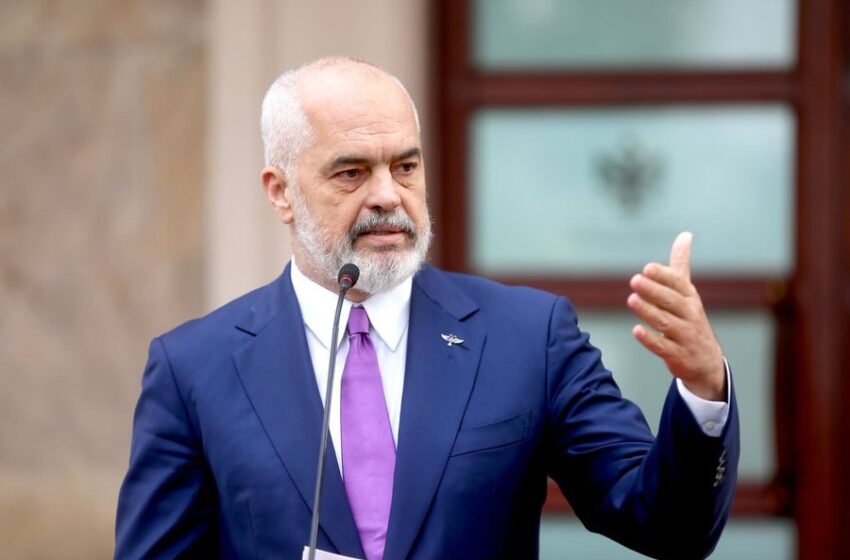In Focus
News in short
Erion Veliaj’s lawyers urge Constitutional Court to fast-track review amid concerns over capital’s governance
 Published on December 13, 2025
Published on December 13, 2025
Why is this important: The request places renewed pressure on the Constitutional Court to address one of the most contentious cases to emerge from Albania’s justice reform. Veliaj has been held in pre-trial detention since February, while the capital city is effectively governed in his absence by a deputy mayor. His lawyers argue that continued delays undermine constitutional guarantees, democratic representation, and the effective administration of Tirana, making the court’s timing as consequential as its eventual ruling.
In Focus
1. Internal dissent within Albania’s Democratic Party triggers renewed leadership tensions
 December 5, 2025
December 5, 2025
Why is this important: The initiative underscores a growing divide between party leadership and influential members sidelined from parliamentary candidacy. Their calls for internal reform and broader inclusion come at a time when Berisha faces criticism for refusing to step down after electoral defeat, raising questions about accountability and renewal within the Democratic Party.
All latest stories
Albanian Constitutional Court reinstates Deputy PM, redraws the line between judiciary and government
 Published on December 12, 2025
Published on December 12, 2025
Why is this important: While not a final ruling on the substance of the corruption case against Balluku, the decision represents a landmark institutional moment—one that redefines the limits of judicial reach into the executive branch. The case will now proceed to a full public hearing on January 22, where the Court will consider Prime Minister Edi Rama’s appeal for a constitutional interpretation of the powers of prosecutors and judges to suspend sitting cabinet members.
“A Place in the Sun” to represent Albania at the 61st Venice Art Biennale
 Published on December 12, 2025
Published on December 12, 2025
Albania proposes new rules to screen foreign investments in sensitive sectors
 Published on December 9, 2025
Published on December 9, 2025
Why is this important: The draft regulation introduces detailed procedures to assess and, if necessary, block or condition foreign investments that could pose risks to public order, national security, or Albania’s informational sovereignty. It signals growing concern about hybrid threats – including cyberattacks, disinformation, and data leaks—that could exploit vulnerabilities in strategic sectors.
Former U.S. diplomat Christopher Hill returns to Albania for memoir launch, reflects on legacy in the Balkans
 Published on December 5, 2025
Published on December 5, 2025
Why is this important: Hill, a key figure in U.S. foreign policy in the Balkans and beyond, is best known in Albania for his role in reestablishing diplomatic ties between the U.S. and Albania after March 1991, after decades of communist isolation. His return, now as an author rather than an envoy, has reignited interest in his legacy and influence across the region.
EU Reporter flags Veliaj detention as warning sign for Albania’s justice reform
 Published on December 5, 2025
Published on December 5, 2025
Why is this important: The article argues that Veliaj’s ten month detention without trial exemplifies what can go wrong when anti-corruption efforts are pursued without safeguards for due process. As Albania continues its bid to join the European Union, the case is drawing increased attention from European legal experts, foreign lawmakers, and human rights observers who warn of potential political motivation and democratic backsliding. This stands in marked contrast to the unquestioning support shown by EU representatives toward the new justice institutions, despite growing evidence that while achieving notable results, these institutions are also showing a troubling tendency toward arbitrary practices and behaviors that would not be acceptable in EU member states.
Internal dissent within Albania’s Democratic Party triggers renewed leadership tensions
 Published on December 5, 2025
Published on December 5, 2025
Why is this important: The initiative underscores a growing divide between party leadership and influential members sidelined from parliamentary candidacy. Their calls for internal reform and broader inclusion come at a time when Berisha faces criticism for refusing to step down after electoral defeat, raising questions about accountability and renewal within the Democratic Party.
Erion Veliaj demands end to “humiliating” metal cage detention, access to case files: raises concerns over procedural fairness
 Published on December 3, 2025
Published on December 3, 2025
Why is this important: Veliaj’s letter and courtroom intervention raise critical questions about due process in high-profile corruption trials, judicial transparency, and human rights standards in Albania. His case is now drawing attention not just politically, but potentially legally on an international scale, as he has signaled the possibility of appealing to the European Court of Human Rights in Strasbourg.
Edi Rama cites delayed Canada flight deal to illustrate impact of Deputy PM suspension
 Published on December 3, 2025
Published on December 3, 2025
Why is this important: The Constitutional Court will meet Thursday to decide whether to accept Rama’s appeal challenging the legality of the Special Court’s suspension of Balluku. At the heart of the case is whether courts can interrupt executive powers, and how that affects government operations.
Albanian parties, CEC, and EU stress urgency of political finance law and electoral reform
 Published on December 3, 2025
Published on December 3, 2025
Why is this important: Albania’s progress toward EU accession depends in part on key reforms that demonstrate transparency, accountability, and adherence to democratic standards. The lack of financial transparency in party funding and ongoing election irregularities have raised concerns domestically and internationally.
Albania to launch nationwide property valuation in 2027 as part of new tax reform
 Published on December 3, 2025
Published on December 3, 2025
Why is this important: This marks a major step toward modernizing Albania’s property tax system, aligning it with European standards and boosting revenue collection. The reform is designed to ensure more equitable taxation based on real market values.
All latest stories
“A Place in the Sun” to represent Albania at the 61st Venice Art Biennale
 Published on December 12, 2025
Published on December 12, 2025
Albania proposes new rules to screen foreign investments in sensitive sectors
 Published on December 9, 2025
Published on December 9, 2025
Why is this important: The draft regulation introduces detailed procedures to assess and, if necessary, block or condition foreign investments that could pose risks to public order, national security, or Albania’s informational sovereignty. It signals growing concern about hybrid threats – including cyberattacks, disinformation, and data leaks—that could exploit vulnerabilities in strategic sectors.
Former U.S. diplomat Christopher Hill returns to Albania for memoir launch, reflects on legacy in the Balkans
 Published on December 5, 2025
Published on December 5, 2025
Why is this important: Hill, a key figure in U.S. foreign policy in the Balkans and beyond, is best known in Albania for his role in reestablishing diplomatic ties between the U.S. and Albania after March 1991, after decades of communist isolation. His return, now as an author rather than an envoy, has reignited interest in his legacy and influence across the region.
EU Reporter flags Veliaj detention as warning sign for Albania’s justice reform
 Published on December 5, 2025
Published on December 5, 2025
Why is this important: The article argues that Veliaj’s ten month detention without trial exemplifies what can go wrong when anti-corruption efforts are pursued without safeguards for due process. As Albania continues its bid to join the European Union, the case is drawing increased attention from European legal experts, foreign lawmakers, and human rights observers who warn of potential political motivation and democratic backsliding. This stands in marked contrast to the unquestioning support shown by EU representatives toward the new justice institutions, despite growing evidence that while achieving notable results, these institutions are also showing a troubling tendency toward arbitrary practices and behaviors that would not be acceptable in EU member states.
Internal dissent within Albania’s Democratic Party triggers renewed leadership tensions
 Published on December 5, 2025
Published on December 5, 2025
Why is this important: The initiative underscores a growing divide between party leadership and influential members sidelined from parliamentary candidacy. Their calls for internal reform and broader inclusion come at a time when Berisha faces criticism for refusing to step down after electoral defeat, raising questions about accountability and renewal within the Democratic Party.
Erion Veliaj demands end to “humiliating” metal cage detention, access to case files: raises concerns over procedural fairness
 Published on December 3, 2025
Published on December 3, 2025
Why is this important: Veliaj’s letter and courtroom intervention raise critical questions about due process in high-profile corruption trials, judicial transparency, and human rights standards in Albania. His case is now drawing attention not just politically, but potentially legally on an international scale, as he has signaled the possibility of appealing to the European Court of Human Rights in Strasbourg.
Edi Rama cites delayed Canada flight deal to illustrate impact of Deputy PM suspension
 Published on December 3, 2025
Published on December 3, 2025
Why is this important: The Constitutional Court will meet Thursday to decide whether to accept Rama’s appeal challenging the legality of the Special Court’s suspension of Balluku. At the heart of the case is whether courts can interrupt executive powers, and how that affects government operations.
Albanian parties, CEC, and EU stress urgency of political finance law and electoral reform
 Published on December 3, 2025
Published on December 3, 2025
Why is this important: Albania’s progress toward EU accession depends in part on key reforms that demonstrate transparency, accountability, and adherence to democratic standards. The lack of financial transparency in party funding and ongoing election irregularities have raised concerns domestically and internationally.
Albania to launch nationwide property valuation in 2027 as part of new tax reform
 Published on December 3, 2025
Published on December 3, 2025
Why is this important: This marks a major step toward modernizing Albania’s property tax system, aligning it with European standards and boosting revenue collection. The reform is designed to ensure more equitable taxation based on real market values.
Constitutional Court to weigh Rama’s challenge to Deputy PM suspension amid separation of powers debate
 Published on December 2, 2025
Published on December 2, 2025
Why is this important: The decision could set a precedent over whether courts can suspend sitting cabinet members without violating the separation of powers. Rama argues that the Special Court’s action infringes on executive authority and threatens the constitutional roles of the Prime Minister, President, and Parliament.











